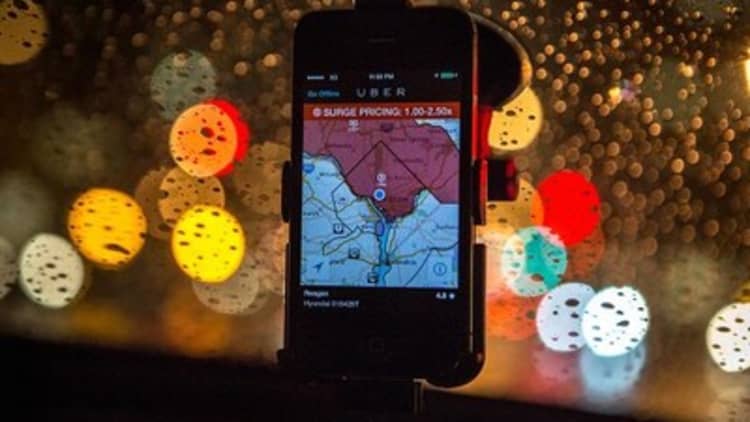
Taxi cab service app Uber has opened a research center in the U.S. to explore new mapping and driving technology – a move analysts believe could eventually mean driverless cars.
Uber will set up an Advanced Technologies Center in partnership with Carnegie Mellon University (CMU) in Pittsburgh.
"The center will focus on the development of key long-term technologies that advance Uber's mission of bringing safe, reliable transportation to everyone, everywhere," the company said in a blog post on Monday.
Uber is joining an increasingly frenetic race, with major automakers and technology companies already heavily investing and testing products. Google, which invested $258 million in Uber in 2013, could be on a collision course with Uber following a Bloomberg report that it is working a cab hailing app of its own. Bloomberg said that Uber employees had seen screenshots of the app currently being used by employees.
But a follow-up report in the Wall Street Journal said the story was "blown out of proportion", citing sources, and it was only testing an internal carpool app that helps Google employees get to work.
Google followed up with a cryptic tweet to Bloomberg which read: "We think you'll find Uber and Lyft work quite well. We use them all the time."
Uber uses Google's mapping technology and the Mountain View, CA-based company worked with Lyft, another car hailing app, to allow users to order a taxi on Android Wear – Google's smartwatch operating system.
Uber CEO Travis Kalanick has hinted that the company would adopt driverless cars as a way to reduce the cost to consumers.
Read MoreGoogle's driverless car is good news for bad drivers
"This is the way the world is going," Kalanick said at the Code Conference last year.
The new research center will have Uber's name on it, but will leverage expertise from CMU, the institution that developed software for NASA's Mars rovers.
But experts say driverless cars are still a long way off given the high cost of producing the vehicles and a lack of regulation.


